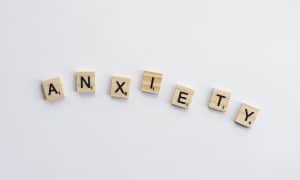 You are what you eat. Those words are especially true when you’re talking about mental health and the role your diet plays with issues like depression, aggression or anxiety. There have been a series of studies conducted to see the effect of a healthier diet or the use of dietary supplements to reduce violence and aggression in prisons. All studies showed that boosting omega-3 and other improvements to diet created a dramatic 33% reduction in violent incidents, while reducing levels of anxiety. Other studies focusing on anxiety specifically show how changing your diet can affect your anxiety levels.
You are what you eat. Those words are especially true when you’re talking about mental health and the role your diet plays with issues like depression, aggression or anxiety. There have been a series of studies conducted to see the effect of a healthier diet or the use of dietary supplements to reduce violence and aggression in prisons. All studies showed that boosting omega-3 and other improvements to diet created a dramatic 33% reduction in violent incidents, while reducing levels of anxiety. Other studies focusing on anxiety specifically show how changing your diet can affect your anxiety levels.
Your brain and your belly control your anxiety levels.
It’s about how the brain functions, the neurotransmitters and the brain-gut connection. The bacteria in the gut help create neurotransmitters, while reducing inflammation and boosting the immune system. Serotonin is one of those neurotransmitters that make you feel less stressed and happier. There are other brain-gut connections. Not only can stress cause you to have digestive issues, but digestive issues can also cause you to have anxiety, depression and stress. Keeping the microbes in the gut happy can also improve your mood and reduce anxiety. Fermented foods, like sauerkraut or yogurt, can help do that.
Foods high in potassium are also good for anxiety.
Foods high in potassium are known to help lower blood pressure by aiding in reducing excess sodium, which increases blood volume and increases blood pressure. However, low levels of potassium also have another effect. It can cause symptoms of anxiety, stress and mental fatigue. Bananas are a good source of potassium, while also providing other nutrients that help with symptoms of anxiety. They also have B vitamins and tryptophan—the precursor of serotonin, which reduces anxiety. Foods high in potassium include green leafy vegetables, avocados and citrus. Foods high in tryptophan include eggs
Eggs are a good source of vitamin D and tryptophan.
Low levels of vitamin D are associated with higher levels of anxiety and depression. Low levels of antioxidants, like vitamin C, also affect your brain health and mood. Blueberries, a good source of vitamin C and flavonoids, have been linked to improving symptoms of anxiety. The vitamin E in almonds and healthy fat can help boost your mood and improve anxiety.
- Drinking unsweetened green tea instead of sugary soft drinks helps anxiety in two ways. Green tea contains L-theanine, EGCG, and other nutrients that relieve anxiety. The reduction of sugar in your diet also plays a positive role in improved mental health.
- If you love chocolate, there’s good news. Dark chocolate is high in flavonoids, antioxidants that boost your mood and reduce anxiety. It needs to be low in sugar and only consumed in moderation.
- Salmon is loaded with anxiety reducing nutrients. It is high in omega-3 fatty acids, vitamin D, EPA and DHA, all of which are good for symptoms of anxiety.
- Foods high in B6 and B12 are good for reducing symptoms of anxiety. Beef, turkey, salmon, tuna, sweet potatoes, bananas, nuts, potatoes, raisins and winter squash are some good sources.
For more information, contact us today at Iron Fit San Antonio
